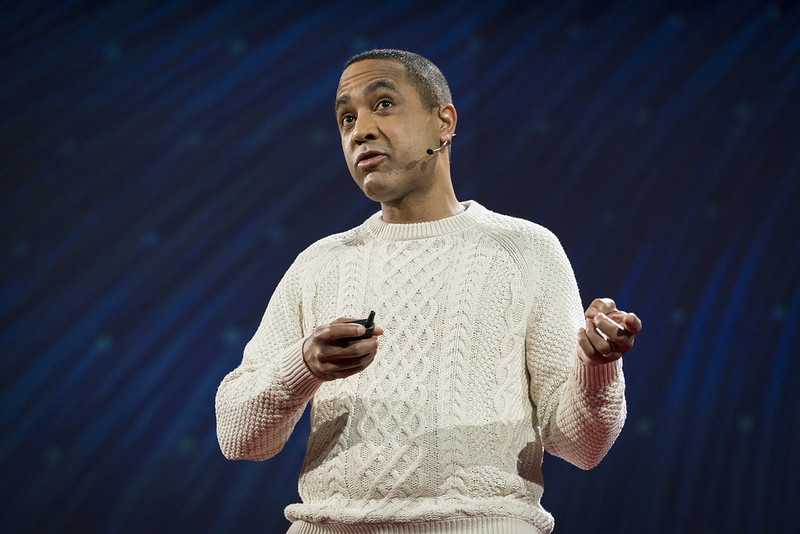Sometimes, a writer comes along who temporarily takes over your thoughts. Their words stick in your head, simultaneously comforting and challenging you. One goes through a period of reading every book and watching every TED talk they’ve done. For me, John McWhorter has been one such writer.
A linguist at Columbia University, he is a deft mix of academic and celebrity (though no doubt he would question the latter label). He writes books, visits universities, and podcasts frequently. Describing himself as a “cranky liberal democrat”, he comments on language, language change, social inequalities, politics, and race.
Part of McWhorter’s versatility is his transcendence of political tribalism. Though left-leaning, one would be hard put to place him definitively in one ‘camp’. He has previously worked for a conservative think tank, which he insists “has always been hospitable to Democrats”. Much of his work is progressive, yet he is also a regular podcast guest on The Glenn Show, hosted by Glenn Loury. Loury is a conservative but thought-provoking thinker, and he and McWhorter amicably debate hot topics and find many shades of consensus in their views. This united cohabitation of left and right thought – while rejecting extremism on both sides – makes McWhorter a refreshing thinker for our divided times.
For instance, I wish I had found his book Talking Back, Talking Black during my nightmarish first-year Linguistics modules. It is an inspiring and uplifting champion of linguistic diversity. His thesis is that Black English is perfectly acceptable and coherent speech. It is not ‘mistaken’ English. It is not ‘slang’. Speaking it at home will not disadvantage Black youth in a job interview. It has just as much complexity and nuance. Yes, it deviates from Standard English, but these deviations are not ‘wrong’; they are alternate. McWhorter explains the factors that lead people to believe otherwise (racism being one of many) and demonstrates just how rich and exciting language diversity is.
Nine Nasty Words – his guide to the etymology of profanity – is equally delightful. You’ll find no prudish, misty-eyed advice to young people that swearing is inadvisable. He unashamedly explores the juiciest of words. One laughs with his analysis despite oneself. You’ll find this relaxed, humorous attitude in his TED talk on texting and his article “Call Them What They Wants”: a staunch defence of the singular ‘they’ for those who reject the gender binary. He plans to expand these views in his next book, Pronoun Trouble.
Simultaneously, he is unafraid to speak his mind when the radical left slips up. His 2021 bestseller Woke Racism criticises a specific strain of the radical left that he thinks has become illiberal, quasi-religious and unintentionally neo-racist. He calls this strain the ‘Elect’. From the infantilisation of Black people in books like Robin DiAngelo’s White Fragility to the weaponisation of witch-hunting cancel culture against dissenters (i.e. ‘heretics’), McWhorter opines that Elect dogma does far more harm than good and benefits nobody – least of all Black youth – well.
To expand upon his criticism of DiAngelo, he describes her book as an unintentionally racist tract and a “primer on original sin”. In an interview, he said it presented Black people as “hot-house flowers where everybody has to tip-toe around us” and confined their identity to suffering. One wonders if McWhorter has read Tia Williams’s Seven Days in June. The Black protagonist writes her first book – a murder mystery with lots of “hot sex” – and her publisher tells her, “cute story, but can we hear more about the characters’ struggles as Black people in white professions?” “Damn”, the novelist responds, “there’s no room for fun Black sh*t?”
Woke Racism ends with three tangible commands that he believes will fight societal racism more effectively. These commands are 1) ending the war on drugs, 2) advocating phonics teaching for children lacking books at home, and 3) promoting the idea that vocational training is just as strong a path to success as university education. They look trivial on paper, but you’ll find that he makes a compelling case.
On a recent episode of The Glenn Show, McWhorter admitted the isolation one sometimes feels when both the far left and right find you ‘controversial’. He described some right-wing fans who expected him to believe things he didn’t (or who got annoyed when he later wrote views they didn’t like). He discussed colleagues distancing themselves from him and online critics purposefully misinterpreting his opinions in bad faith. This account makes for sad listening. It is a regrettably human instinct to hold our role models to puritanical standards where we expect them to agree with all our positions. It’s an instinct I try my hardest to resist. Not only should our media heroes be welcomed to challenge us, but also – above all – they remain human. It is sad that one of McWhorter’s most admirable traits – his nuanced balancing of all types of views – is also one that isolates him.
John McWhorter, ladies and gentlemen. A hero for our times.
Image “TED2016_021616_3BH7615_1920” by TED Conference is licensed under CC BY-NC 2.0.

